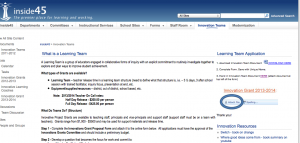As a teacher at a Unicef Chartered Rights Respecting School, Chartwell Elementary in West Vancouver, I am personally connected to the issue of human rights and equality. The topic of World Libraries is new to me, but one that is fitting with the culture of my school. Chartwell has a high number of English Language Learners (ELL), as well as a high transient population. Many Asian families who are moving to the Vancouver area choose our school because of our reputation for being a place of acceptance and cultural promotion. We boast one of the highest percentage of second and third languages in the province, and with those numbers comes a culturally diverse population of learners. This year we had students whose families came from 26 countries, who spoke 22 languages! This in a school of 243 students.
I really connected with the TedTalks video of Sugata Mitra on our class blog today; and found another to share here, Build a School in the Cloud is a winner of this year’s $1M Ted Prize. Yet another leader provoking conversation about school change! The following article, from June 15, 2013, was posted in our school’s Yammer networking site. The connections between ICT, school reform, equity, inquiry, and linguistic cognitive domain continue to grow!
At first I wondered why this video was related to the topic of World Libraries, and then something Sugata Mitra said struck a chord with me: IC4IT. I googled the phrase ‘information technology for international development’ and found a link to the topic as well as the journal that supports this field of learning. From Wikipedia,
This relatively new field of study is so important to our global shared learning base and international relations. Sharing ICT resources (people, tools, knowledge) is the socially responsible thing to do. I also believe it may help with cultural preservation (parents and children, friends can communicate visually and orally across the globe 24-7). Concerns (from our discussion group) about World Libraries replacing the physical connections to our learning communities are alleviated in this model as collaboration is something Mitra found key to the learning process.
The ITID Journal is ‘focused on the intersection of ICT with social and economic development’. I have bookmarked this journal’s website and will share it with my colleagues, as some interesting (Rights of the Child) Inquiry topics may be researched through perusing the archives.





